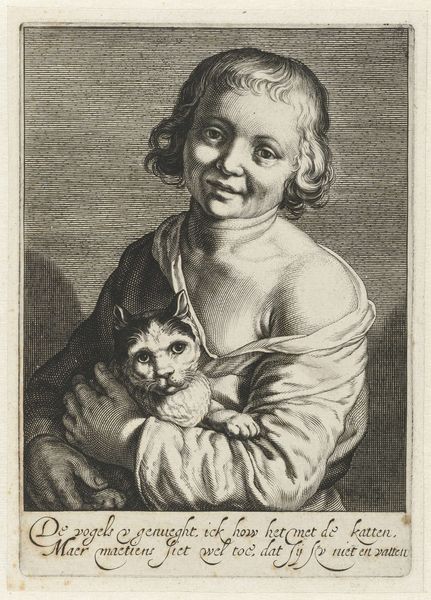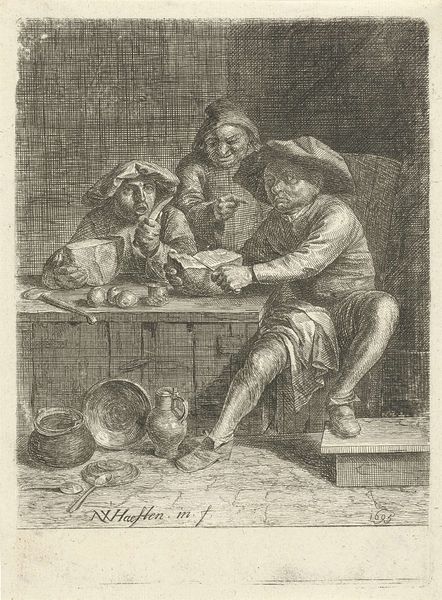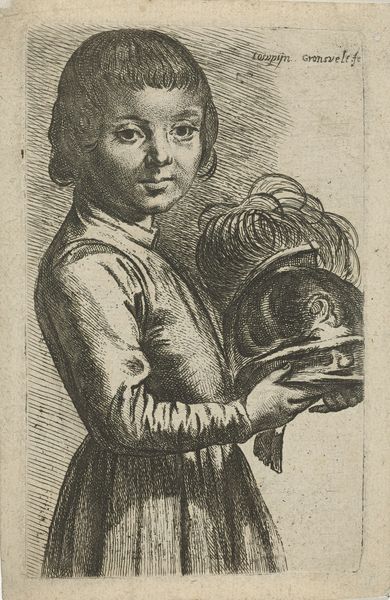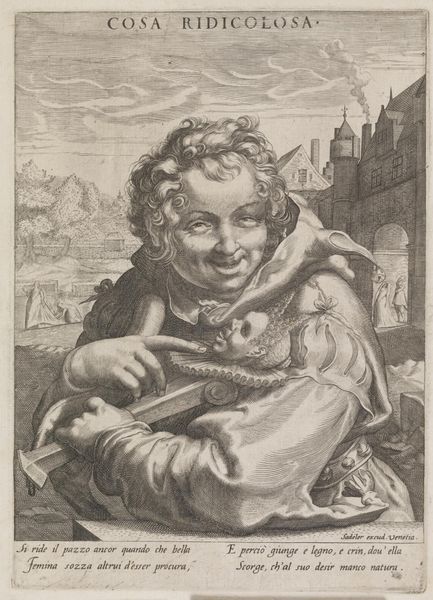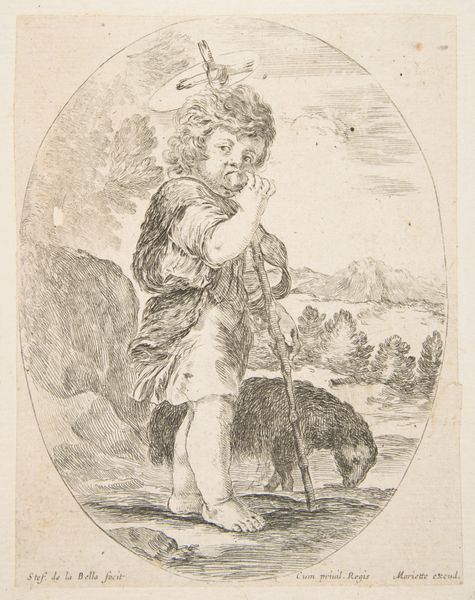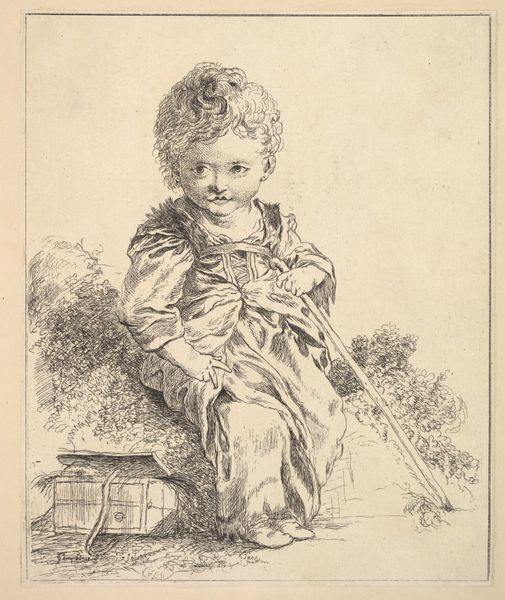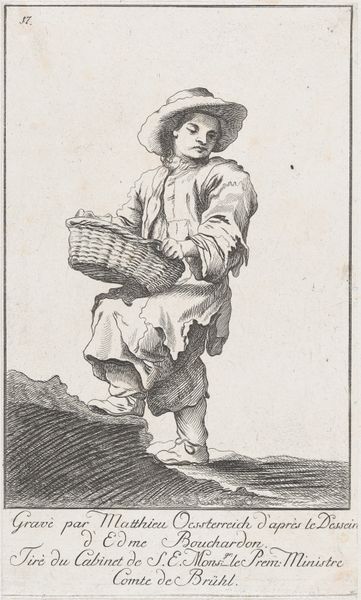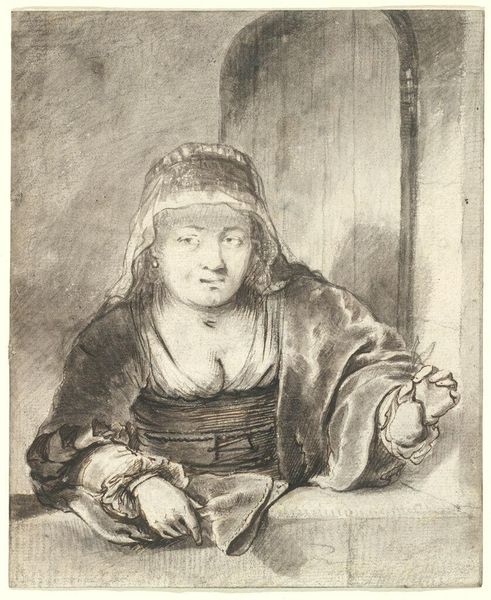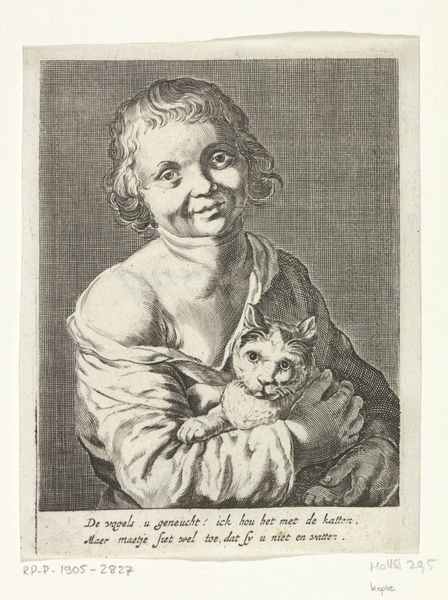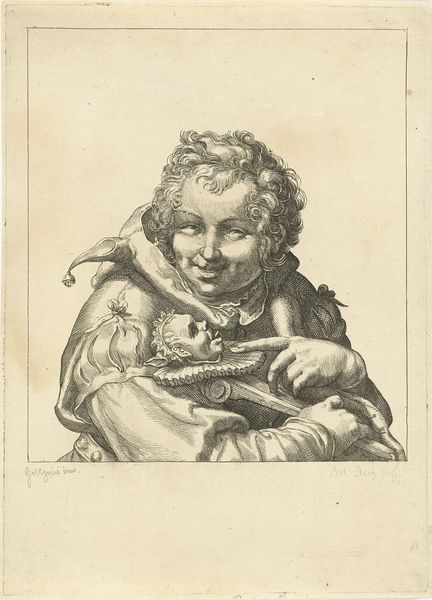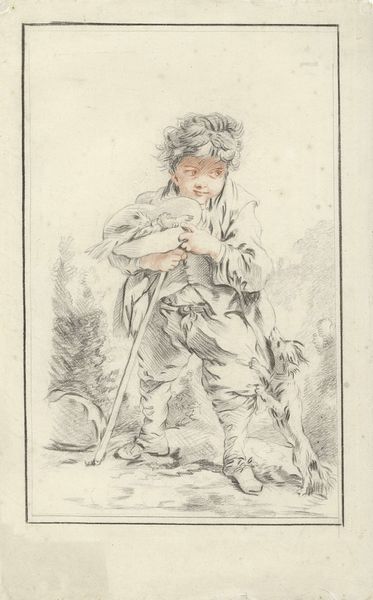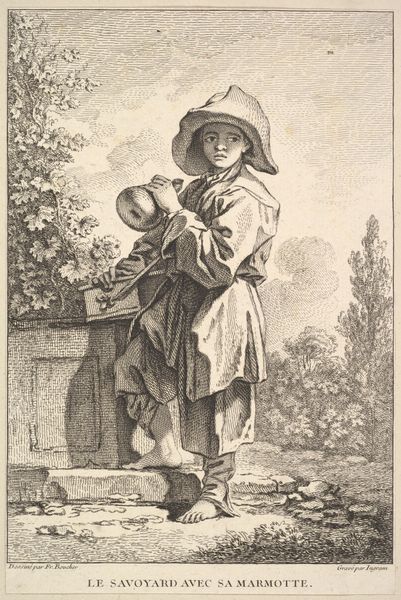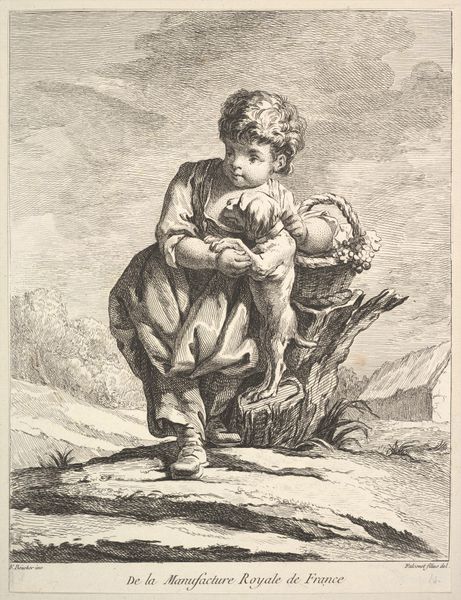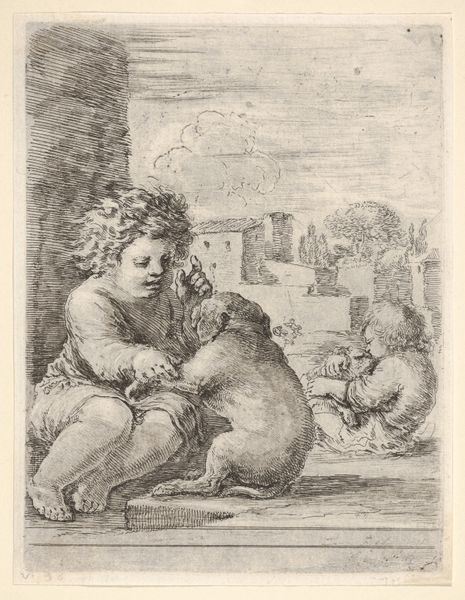
engraving
#
portrait
#
baroque
#
figuration
#
line
#
genre-painting
#
engraving
Dimensions: height 200 mm, width 155 mm
Copyright: Rijks Museum: Open Domain
Editor: This is Lambert Visscher's "Laughing Boy with Cat," an engraving made sometime between 1643 and 1690. It's mostly line work, isn't it? All those tiny marks… What strikes me most is the contrast between the brick wall and the soft textures of the boy's hair and fur of the cat. What do you make of this piece? Curator: Consider how the engraving medium itself affects our reading. An engraving allowed for mass production of images and the distribution of art to a broader audience. It collapses distinctions. Do you think the choice of material elevates or diminishes the subject? Editor: Diminishes? I suppose… paintings often get more attention than engravings, but it seems more democratic. Did prints have other functions in seventeenth-century Dutch society? Curator: Precisely. Engravings served a crucial role in disseminating visual information. Reflect on the labor invested in creating the printing plate, and how the market shaped the themes and subject matter in art. Editor: That's interesting! So, this smiling boy with his pet wasn't just art for art's sake? There's something about accessing art more widely that makes it worthwhile even if it’s “just” a print. Curator: The artist, Visscher, surely was responding to a commercial opportunity in making such a common-life image. Do you think it might change how you view similar works in other mediums like painting? Editor: Absolutely. It definitely makes me think about who had access to different kinds of art and how that shaped artistic choices. Thanks for making me think about art this way! Curator: It makes me see it anew too. Thinking about the accessibility of materials and process allows for an entirely different reading!
Comments
No comments
Be the first to comment and join the conversation on the ultimate creative platform.
